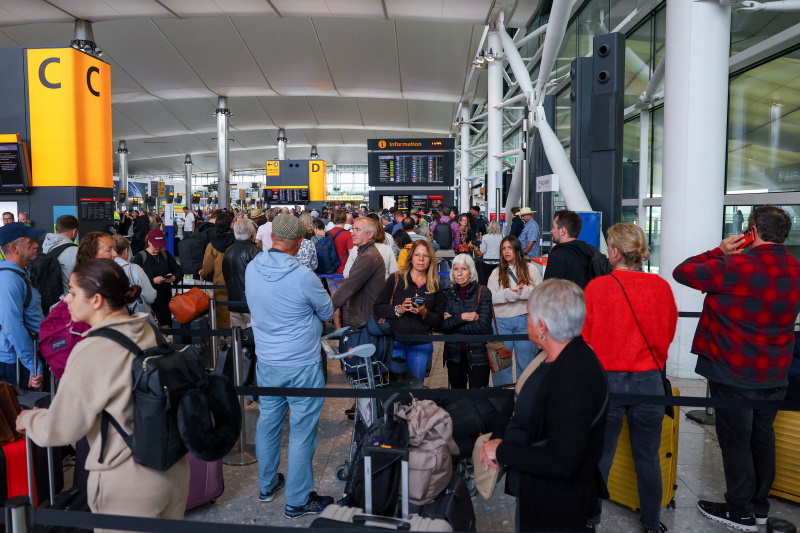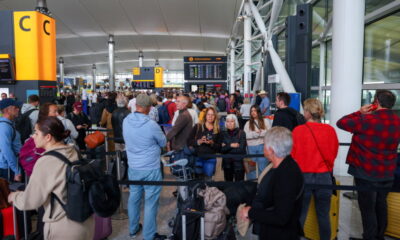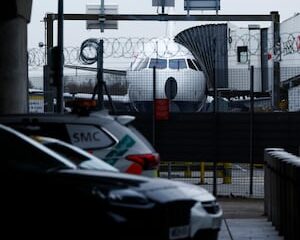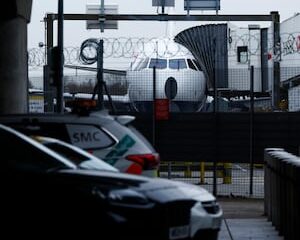Top Stories
European Airports Disrupted by Cyberattack, Investigations Underway

A significant cyberattack has disrupted operations at several major European airports, raising alarms about the vulnerability of critical infrastructure to such threats. The European Union Agency for Cybersecurity, known as ENISA, confirmed that the incident has led to significant delays and operational challenges across the affected airports. As investigations continue, law enforcement agencies are working to determine the origin of the attack.
Airports, including Brussels and London Heathrow, Europe’s busiest airport, are among the hardest hit. Collins Aerospace, a key technology provider, is collaborating with these airports to restore full functionality, with updates nearing completion. Despite these efforts, Berlin Airport is still experiencing severe delays, with wait times exceeding one hour for departures. The airport is currently facing an influx of passengers due to the ongoing Berlin Marathon.
Passengers at Berlin Airport described the check-in process as reminiscent of the early days of air travel, with handwritten boarding passes becoming necessary as electronic systems remain offline. Meanwhile, Brussels Airport has resorted to using iPads and laptops to handle check-ins, reflecting the impact of the cyberattack on regular operations. Out of approximately 550 flights scheduled for the day, around 60 have been cancelled due to these disruptions.
In contrast, Dublin Airport has reported minimal disruptions and has implemented some manual processes to mitigate the impact of the incident. The swift response from airport management aims to ensure passenger safety and maintain service levels as much as possible.
The recent surge in cyberattacks has increasingly targeted both governments and private companies, with notable incidents involving firms like Jaguar Land Rover, which had to halt production due to similar threats. According to a survey conducted by Bitkom, a German industry group, ransomware attacks—where malicious software locks data until a ransom is paid—are now the most common form of cyberattack, affecting one in seven companies.
As the investigation into the cyberattack unfolds, the response from airport authorities and cybersecurity experts will be crucial in preventing similar incidents in the future. The ongoing disruptions serve as a reminder of the growing risks posed by cyber threats to essential services and infrastructure across Europe.
-

 Sports2 months ago
Sports2 months agoNetball New Zealand Stands Down Dame Noeline Taurua for Series
-

 Entertainment2 months ago
Entertainment2 months agoTributes Pour In for Lachlan Rofe, Reality Star, Dead at 47
-

 Entertainment4 weeks ago
Entertainment4 weeks agoNew ‘Maverick’ Chaser Joins Beat the Chasers Season Finale
-

 Sports6 days ago
Sports6 days agoEli Katoa Rushed to Hospital After Sideline Incident During Match
-

 Sports2 months ago
Sports2 months agoSilver Ferns Legend Laura Langman Criticizes Team’s Attitude
-

 Politics1 month ago
Politics1 month agoNetball NZ Calls for Respect Amid Dame Taurua’s Standoff
-

 Entertainment2 months ago
Entertainment2 months agoKhloe Kardashian Embraces Innovative Stem Cell Therapy in Mexico
-

 Sports4 days ago
Sports4 days agoJamie Melham Triumphs Over Husband Ben in Melbourne Cup Victory
-

 World3 months ago
World3 months agoPolice Arrest Multiple Individuals During Funeral for Zain Taikato-Fox
-

 Sports3 months ago
Sports3 months agoGaël Monfils Set to Defend ASB Classic Title in January 2026
-

 Entertainment1 month ago
Entertainment1 month agoTyson Fury’s Daughter Venezuela Gets Engaged at Birthday Bash
-

 Sports1 month ago
Sports1 month agoHeather McMahan Steps Down as Ryder Cup Host After Controversy



















